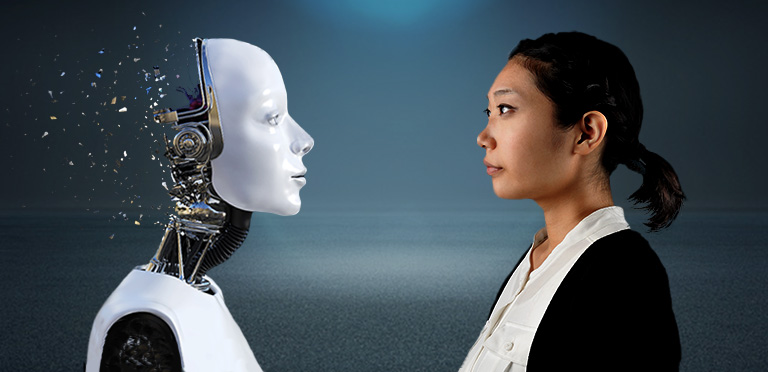Counseling in the Age of Artificial Intelligence

Are you ready for the robots? They are coming in great numbers, they are proficient, and they will do amazing things that human beings cannot. The 2020s are just around the corner. This decade is likely to usher in a new era for civilization—the rise of artificial intelligence.
Artificial intelligence—or AI—refers to machinery that emulates aspects of human cognition. AI computers are instilled with intelligence similar (sometimes eerily similar) to human intelligence. Smartphones employ AI, and so does Google’s self-driving car. The HAL 9000 computer from the movie 2001: A Space Odyssey offers a fictionalized but terrifying look at the possible pitfalls of AI. If you are in the fearful camp, you aren’t the only one. Theoretical physicist Stephen Hawking suggests that if left unchecked, AI could spell the end of the human race. Today, AI is no longer confined to the movies, and we should ask: Will robots surpass us intellectually?
If all this sounds fanciful to you—robots taking over, really?—I would refer you to Moore’s Law, which indicates that computer power doubles every two years. Gordon Moore co-founded the company Intel and made his suggestion in 1965. Thus far, Moore’s Law has held firm. Like a penny doubling in value every week, at first the gains are small, from 1 cent to 2 cents to 4 cents. Over time, the value grows exponentially. Exponential computer growth could spell the rise of AI that would allow robots to perform feats once the subject matter of fantasy novels.
Fine, you say, how does this relate to my profession, the field of counseling? As hackneyed as the expression is, perhaps the better question is: How does AI not relate to counseling?
Actually, AI already dabbles in the therapeutic professions. There is Xiaoice (pronounced Shao-ice), an AI produced by Microsoft. Xiaoice is a chatbot programmed to emulate the personality of a 17-year-old girl. She is what some call a therapistbot, texting with people mainly in China. To millions of people, Xiaoice is a confidant, an adviser, or even more. People proclaim their love for Xiaoice. She is empathic, reflects well, and seems to genuinely care. Now take it a step further: Imagine the Xiaoice of the future, a robot who sounds, responds, and looks like a human. Sound like any counselor you know?
For now, Xiaoice is still a computer. So what? Forty million users and counting use her in a therapeutic capacity. She is always available. She is enticing to the masses. She is just the beginning of how AI will touch the field of counseling.
Other current examples of AI therapeutic applications include:
- Woebot: A chatbot therapist developed by Stanford University researchers
- Paro: An artificially intelligent baby seal that is being used to help treat dementia patients
- Ellie: An avatar that helps treat depression and PTSD developed by scientists at the University of Southern California
The more one investigates AI, the more one’s mind is blown. AI is here whether we like it or not, whether we have ethical problems with it or not, and whether we are excited or scared. Knowledge is power. Educate yourself on AI now. Tomorrow is unwritten, but the future promises to be interesting. Very, very interesting.

